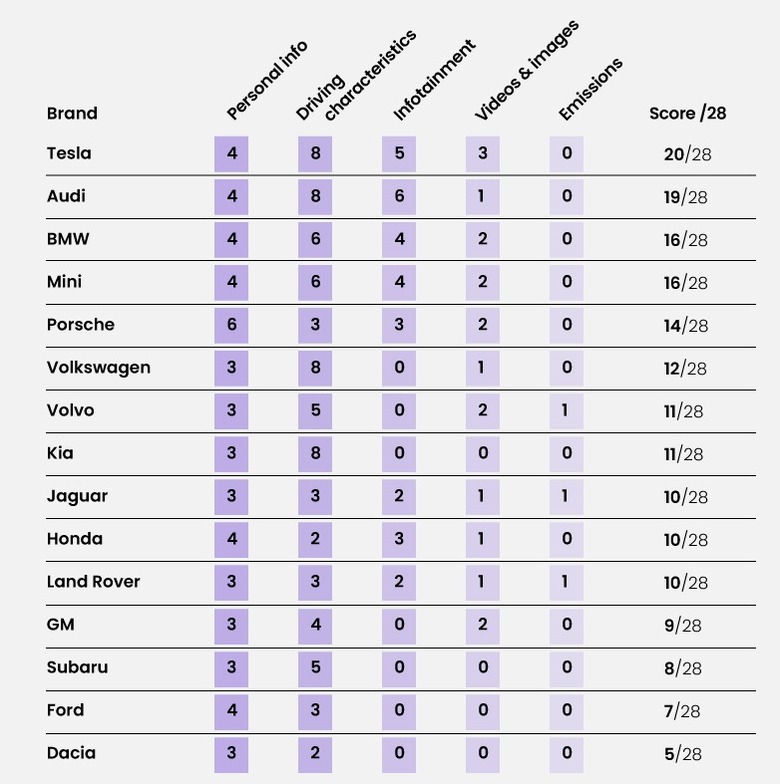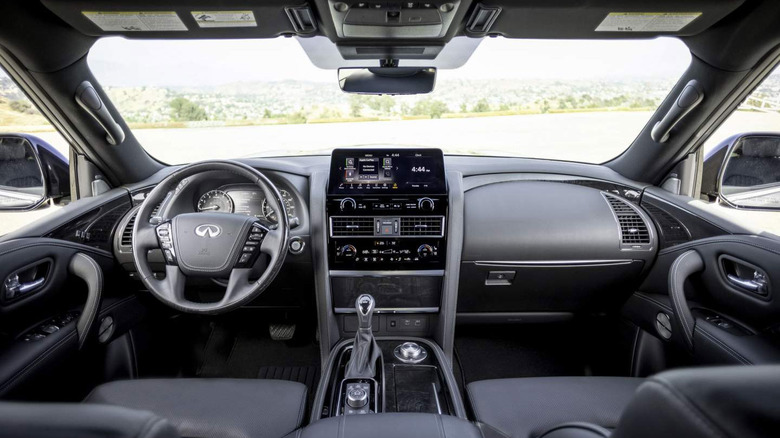Modern cars hide a lot of your personal information
Most people know that modern electronic devices such as smartphones, tablets, and computers store a line of information about our personal and private lives that we don't want strangers to get their hands on. However, many people don't consider just how much personal information is stored inside their vehicle's infotainment and other systems. Often, we think of the act of pairing our smartphones with our cars as allowing nothing more than convenient hands-free talking and the ability to utilize services like Apple CarPlay and Android Auto without considering the access given to the vehicle systems to personal information.
It's easy to forget years down the road that when we first sync our smartphones with our cars, they often download a wealth of information from our smartphones to utilize services like voice calling and others. Within the vehicle infotainment system is often a complete contact list. In some instances, infotainment systems can track your phone's location, store your calendar showing all kinds of personal information like doctor's appointments and more. Many infotainment systems also store text messages and other very private content like photos.
Without realizing your car stores such a wealth of information, many people never even consider clearing out that information before selling or trading in a vehicle. While only some of the most recent vehicles can store data like text messages and calendars, vehicles going back for many years can store your entire contact list, giving the next buyer access to everyone you know if you forget to delete the information. And photos.
A perfect example is a Volkswagen Passat owned by my daughter. Every time we start that car, it attempts to connect to the previous owner's phone, and his contact list is still stored inside the infotainment system. When I sold cars many years ago, one owner had a photo of his bikini-clad significant other posing as the screen background on the infotainment system. The new study has looked into the top 15 automakers worldwide and investigated data sharing policies among them. The study evaluated each brand on 28 different data points focusing on data collected on drivers to see which automaker collects the most information.

One of the automakers collecting the most data on users is Tesla, which makes sense considering it has some of the smartest and most connected vehicles on the market. The more personalized services a vehicle offers, the more data it needs on the user. That puts Tesla at the top of the list of automakers collecting the most data on users scoring 20 points out of a possible 28.
Audi comes in right behind Tesla with a score of 19 out of a possible 28 points. BMW and Mini tie for third place each with 16 points out of 28 possible. Porsche is in fourth place with 14 points, but it's notable that Porsche gathers the widest range of personal information out of all automakers. Rounding out the top five was VW with 12/28 possible points. Interestingly, American manufacturer Ford sits in the 14th spot with only 7 of 28 possible points. The automaker that gathers the least personal information on drivers is Dacia, with 5 of 28 possible points.
The most commonly collected information among all automakers includes personal details like name, phone number, and address. Much of that information is stored for the navigation system to allow easy routing to work or home to avoid traffic. However, if you forget to delete that information, the new owner of your vehicle knows where you live, where you work, your name, and your phone number. Some automakers store location history. In that instance, the new owner would know the places you frequent, giving them a very good idea of where to find you at any given point in your day.
Of all automakers covered on the survey, Porsche is the one who copies the widest range of personal information, including email, phone numbers, addresses, location history, current location, contacts, calendar, and the location of your mobile phone. It's the only automaker listed in the study to gather data in all categories. Every automaker on the list gathers information, including email, phone number, address, location history, and current location in one form or another.

Many automakers also gather significant amounts of data on your driving characteristics, with Tesla gathering the most data by far, including information on braking and acceleration, crashes, airbag deployments, and charging history, among other data. By comparison, Ford only gathers information on speed, braking, and acceleration. Considering that credit cards are often tied to apps we use on our smartphones, it might disturb some to know that many automakers store app sign-in details, notably Tesla, BMW, Audi, Jaguar, Porsche, Land Rover, and Mini all store that type of information.
The big takeaway from this study is that people, in general, need to be more aware of the significant amount of personal data stored by their vehicles. We would never sell a smartphone or laptop packed with that sort of information, but most rarely consider the information they're giving freely when they sell or trade-in a car. Much of this information can be deleted.
